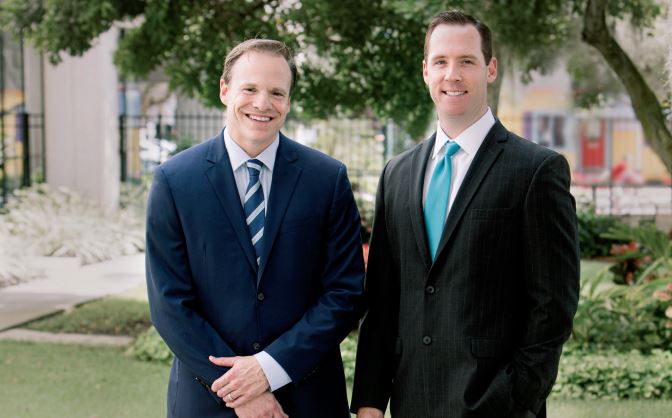Changes to the federal income tax law that limit deductions on state and local taxes have fueled a mini real estate boom in Florida, particularly for higher-end properties. Florida is attractive to residents from higher tax locales because it is one of only seven states that have no income tax, and it also has no estate or inheritance taxes. However, establishing Florida domicile for tax planning purposes is no longer a simple process, as more aggressive tax collection by other states has raised the bar on what criteria is required to have truly relocated to the Sunshine State.
Estate planning and tax attorneys, John Compton and Christopher Fowler of Norton, Hammersley, Lopez & Skokos, P.A., a Sarasota law firm, concentrating in real estate, estate planning, business, tax, trial practice, and dispute resolution, have developed legal and tax planning strategies to aid clients, including a checklist of criteria to help clients demonstrate that they have made the lifestyle and other changes necessary to establish Florida domicile. Effective in 2018, deductions for state property, income, and sales taxes are capped at $10,000, which can create significant additional tax liability for some taxpayers. California, for example, has a top marginal income tax rate of 13.3 percent.
“Years ago, if you spent the majority of your time in Florida, changed your car registration, registered to vote, and got a Florida drivers license, you could be considered to have established Florida domicile,” Compton said. “Now, many state tax authorities are getting very aggressive, such that minor cosmetic changes won’t suffice anymore. State tax authorities are looking in-depth to see whether someone really has moved his or her life to Florida on a case-by-case basis. There is no cookie cutter solution.”
It’s no longer enough to buy a Florida condo, but keep everything else in the former state, such as country club and golf memberships, bank and brokerage accounts, boat or vehicle registrations, religious affiliations, and even cherished items like family heirlooms. As a first important step, taxpayers desiring to establish Florida domicile must spend the majority of their time in Florida. The rule of thumb is six months and a day. Keeping an activity log and detailed records are a must. If possible, holiday and special occasions should even be celebrated in Florida. New residents also should file for a homestead exemption and a declaration of domicile for Florida property. It is very important to terminate any homestead exemption in the former state. Florida tax authorities are vigilant, and penalties are severe for taxpayers claiming two homesteads.
“If you’re audited, they may even look at where your pets are located. States are going to amazing lengths to put the burden on the taxpayer,” Fowler said. “Some states will give you a laundry list of factors that will establish domicile elsewhere, but it really is very subjective. Other states won’t even list factors, and in those cases, you need to consult a local attorney who can review case law to determine the necessary criteria.”
Those who continue to have income sources in their former state, such as an active business or rental property, still may owe state income tax there, even if they properly establish Florida domicile. “Some things you can’t do a lot about, such as a historical family property or an active business in the former state, although we have strategies that may help mitigate that tax burden,” Compton said. “Estate planning considerations are also important. Sometimes, people are surprised to get a letter from the tax authority in their former state after someone passes away. A lot of clients are retired, but still have a major interest in a business in the former state. They can run into significant issues if they have been traveling back to the former state for a long time, and they still have a permanent home there.”
Not taking the proper estate planning steps can be costly for those who come from states that levy estate or inheritance taxes–note that New Jersey has both. New residents should take the opportunity to update their estate planning documents by having a new will and/or revocable trust prepared, in order to state specifically that they now reside in Florida and ensure that their documents are in conformity with Florida law. Powers of attorney, health care proxies, and advance directives should also be revised. Doing that not only ensures that estate-planning documents reflect someone’s current intentions, but it also checks off one of the criteria for establishing Florida domicile.
“Even if someone is merely contemplating making Florida his or her domicile, starting to take these steps a year or more ahead of time is a good idea. Unfortunately, no single factor will determine domicile. We advise trying to check off as many factors as possible because any one of those, if not checked, could result in taxes in the former state,” Fowler said.
CONNECT: John Compton and Christopher Fowler of
Norton, Hammersley, Lopez & Skokos, P.A | 1819 Main Street, Sarasota, FL 34236 | 941-954-4691


